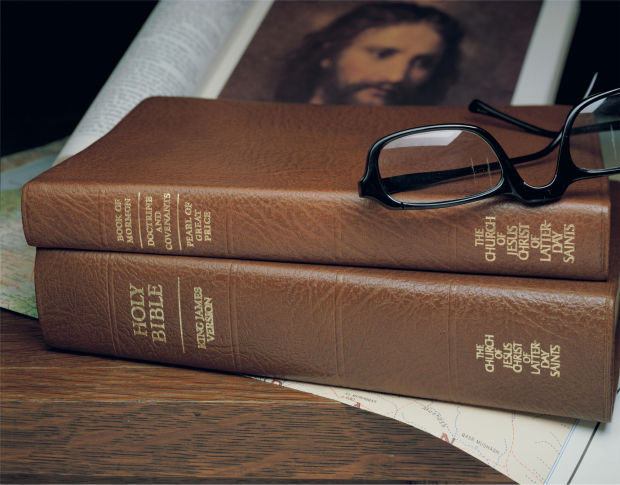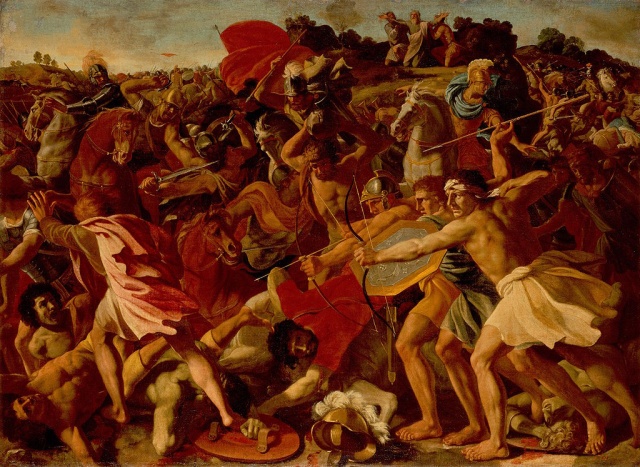Question
Dear Gramps,
While it is clear that there are doctrinal differences and differences in the interpretation of scripture between the Mormon Church and evangelicals, is there really a difference in their world views on the role of scripture in religion and its applicability in real life? It is interesting to note that so many leaders insist that they do not subscribe to the notion of biblical inerrancy, but that the notion of scriptural inerrancy is well evident in their rhetoric. The whole missionary approach, both taught to missionaries in the field and used by the brethren acting as missionaries, appears to be completely based on the notion that the Bible is essentially inerrant, just misinterpreted. The acknowledgment that the Bible is mistranslated doesn’t really seem to have much bearing on whether or not the Bible (particularly the Book of Revelation, some of the teachings of Jesus, and much of the Old Testament) is acknowledged as inerrant prophecy that will surely come to pass–the world views purported in Mormon eschatology and that of evangelicals. Bible passages are treated as prophecy that has reference to the modern day and are extremely influential on the followers’ world views on modern politics (i.e. LDS people and evangelicals tend to both be staunchly Republican and supportive of Zionism on the grounds that the creation of the state of Israel is fulfillment of modern day prophecy) and are viewed as undoubtedly coming to pass, as opposed to having specific reference to political and social situations of the life and the prophets’ own personal world views of religion and politics. Doesn’t the Mormon Church really support the notion of scriptural inerrancy like unto the evangelical notion? How do we best negotiate this seeming contradiction?
Brad
Answer
Dear Brad,
It is true that the Mormon Church has as one of its Articles of Faith that—
We believe the Bible to be the word of God as far as it is translated correctly; we also believe the Book of Mormon to be the word of God.
A knowledge of the translation errors does exist, and with that knowledge a true perspective of the meaning of questionable scriptures may be more readily perceived. However, even in those cases where the translation is correct, the understanding of the meaning can only be achieved through the influence of the Holy Ghost—
For what man knoweth the things of a man, save the spirit of man which is in him? even so the things of God knoweth no man, except he has the Spirit of God (JST 1 Cor. 2:11).
So with that knowledge given of the Spirit, members of the Mormon Church treat the Bible as though it were interpreted correctly, if not translated correctly.
Concerning the knowledge of the translation errors, we have the inspired translation of the Bible by the prophet Joseph Smith, while although it was not completed before his death, was apparently nearly complete. And as you know, where differences occur between the King James Version and the Joseph Smith translation, they are included in Bibles published by the Mormon Church either as footnotes or as an addendum. And although the differences are often quite small they are by no means insignificant. A most interesting approach to the accuracy of the Book of Isaiah, for instance, is a comparison of the King James Isaiah with the twenty Isaiah chapters that are included in the Book of Mormon. The Book of Mormon Isaiah was copied from the Brass Plates of Laban by Nehpi and Jacob. The Brass Plates of Laban could very well have been the original source of Isaiah. Both Lehi and Jeremiah added their records to the previously existing Brass Plates. It is quite possible that since Moses was unacquainted with Hebrew, but very conversant with Egyptian writing and culture, he would have written the Pentateuch in the sacred Egyptian hieroglyphics. And the prophets who followed him would have had to learn Egyptian to teach the law of Moses to the people, and to follow the precedent by adding their own record in the same language. If this were the case, the Book of Mormon Isaiah would be Joseph Smith’s inspired translation of the very handwriting of Isaiah that was copied by Nephi and Jacob onto the Small Plates of Nephi. Thus, the Book of Mormon Isaiah becomes the original standard by which all other versions may be judged.
Examining those chapters one finds a total of 348 changes–either additions, subtractions or modifications. Of those 348 changes 233 are only stylistic, i.e. they do not change the meaning of the passage. The other 115 substantive changes indeed modify the meaning of the passages. And far from being random scribal errors, it is quite obvious that they were intentional changes designed by the apostate Jews to bring the scriptures more in line with their apostate beliefs. As just a case in point let’s look at 1 Nephi 20:6, taken from the Brass Plates of Laban and compare it with the same passage found in KJV Isaiah 48:6.
1 Ne 20:6 Thou hast seen and heard all this; and will ye not declare them? And that I have showed thee new things from this time, even hidden things, and thou didst not know them.
Isa 48:6 Thou hast heard, see all this; and will not ye declare it? I have shewed thee new things from this time, even hidden things, and thou didst not know them.
(Differences in italics)
By the subtle change of “see” for “seen and,” and by relocating the change to after the word “heard” in the first phrase of verse 6, the KJ completely changes the meaning of the passage. In the BM the Lord continues the thought of the preceding verses, reiterating that Israel had been foretold of the Lord’s marvelous works, and were refusing to recognize them. In the KJV, by changing to “thou hast heard, see all this,” it changes the declaration of former things (the revelations) to a rumor of some act that could be witnessed. The deception is fortified by changing the plural “them” to the singular “it” at the end of the sentence.
Since the context has been changed from the intended reminder of the fact that Israel had been foretold to a chastisement of its obstinacy, (the altered verse 4), the second sentence in the verse stands unaltered since now the statement that the Lord had shown Israel new things is not related to its idolatry.
So it turns out that although the Mormon Church has a caveat with respect to the accuracy of the Bible translation, it nevertheless adheres more closely to the concepts announced and developed in the Bible than do any of the protestant religions.
Gramps







